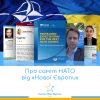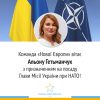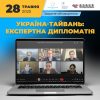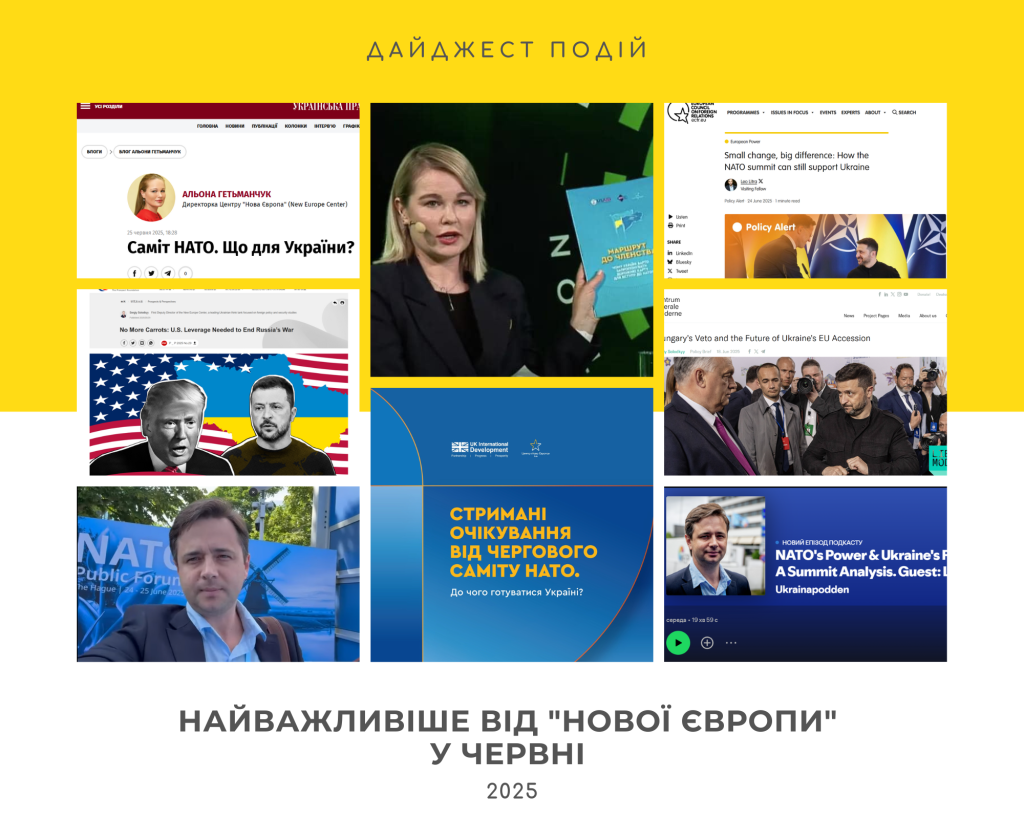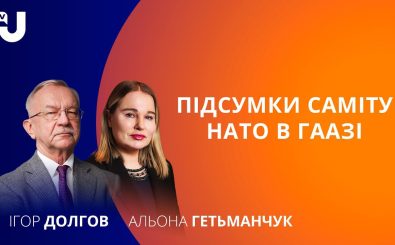In order to counter Russia’s subversive activities against Ukraine in the European Union, Kyiv should improve communication in European countries: develop messages not only for each individual country, but also for individual audiences (students, diaspora, businessmen, cultural figures, etc.). This, among other arguments, was stated by the experts of the New Europe Center (NEC) on December 10 during the presentation of their policy paper “Atrophy of Trophies. How Can Ukraine Take Advantage of the Vulnerabilities of Russian Policies in the EU?”
The speakers were Yevhen Marchuk, member of the Strategic Advisory Group at the NEC and a representative of Ukraine in the Tripartite Contact Group at the Minsk negotiations; Balazs Jarabik, Nonresident Scholar at Carnegie Europe; Nona Mikhelidze, Head of the Eastern Europe and Eurasia Program, Istituto Affari Internazionali; Petro Beshta, Deputy Director of the Directorate General for Policy of the Ministry of Foreign Affairs of Ukraine; Wilfried Jilge, Associate Fellow at the German Council on Foreign Relations (DGAP) in Berlin. The event was moderated by Sergiy Solodkyy, First Deputy Director of the NEC.
At the beginning of the event, Sergiy Solodkyy presented the main findings of the analytical research conducted by the New Europe Center.
“In the case of the conflict between Ukraine and Hungary, it is often said that Russia is taking advantage of it; however, there is no evidence that it has been inspired by the Russian Federation… In the case of alleged sexual assault against a Russian-speaking girl perpetrated by a migrant in Germany, the German media promptly exposed the Kremlin’s propaganda… France is one of the cases of success story in terms of countering Russia’s subversive actions, where the fight against the dissemination of misinformation is enshrined at the legislative level,” stated the First Deputy Director of the NEC.
“In fact, Russian instruments of influence in Europe have a lot of vulnerabilities. This is detailed by the New Europe Center team in their research “Trophy Atrophy.” These vulnerabilities include the lack of influence on the political mainstream in many EU member states, the toxicity of pro-Russian politicians, distrust toward Russian sources, and the lack of public support for Russia’s actions and messages. The research is based on six cases (Germany, France, Italy, Greece, Poland, and Hungary) and shows successful examples of counteractions to Russian policies in each of these countries,” added Sergiy Solodkyy.
Main theses of the speakers of the presentation.
Yevhen Marchuk, Member of the NEC’s Strategic Advisory Group, representative of Ukraine in the Tripartite Contact Group at the Minsk Negotiations
Russia started preparations for a hybrid war as early as in 2013.
- “Russia began modernizing its media sphere in 2013. At that time, the budget of Russia Today TV channel was larger than the budget of the entire Security Service of Ukraine. You will not find any propaganda of the Russian way of life there: the major TV medium working in the West does not propagandize Russia, but spreads stories telling how bad the West is. In parallel with that, Russia began reforming its military strategy through the so-called “Gerasimov Doctrine.” This doctrine outlines the entire technology of the hybrid war to be implemented not only through the military resources, as it contains such item as the establishment of opposition in the states where hostilities are to take place. This means that Russia simultaneously reformed both media and military components.”
Russia does not adhere to the Minsk Agreements, while accusing Ukraine of violating them.
- “The so-called “elections” in the STDLR of November 11th radically contradict the Minsk Agreements, according to which elections in occupied Donbas should be held exclusively according to Ukrainian legislation. However, at the same time, the Kremlin accuses Ukraine of alleged violations of the Minsk Agreements.”
Russia still blocks the implementation of a number of provisions of the Minsk Agreements.
- “Minsk documents, signed by all parties, contain an agreement to establish a zone free of heavy armaments. This zone stretches from the coast of the Azov Sea to 100 km north. The only thing to do is to let the OSCE SMM patrols to check the territory. However, Russia does not allow that for four years, offering Ukraine to negotiate with representatives of the so-called “DPR.”
- “It has been signed and agreed that the OSCE SMM is to establish a security zone along the entire section of the border with Russia that is not controlled by Ukraine (406.7 km). They were not to replace the border guard, but to create the security zone to control and see what is happening along the border. For four years, the OSCE SMM representatives have been blocked, which did not allow them to at least start establishing that security zone.”
- “In September 2014, the first Minsk Agreements have been signed, with the encounter line defined. The parties have made a commitment to maintain this line constant and refrain from offensive actions. Today, a half of the encounter line does not coincide with the agreed line. In addition, after signing the first Minsk Agreements, another 1,648 square kilometers of Ukraine’s territory have been seized.”
Balazs Jarabik, Nonresident Scholar at Carnegie Europe
Russia actively supports political contenders of Hungarian Prime Minister Viktor Orban which sometimes perceived as pro-Russian.
- “I don’t think that Hungary is a good case to define Russian influence. Relationship of Orban and Putin are clear cut by support of Orban’s biggest contender Jobbik, far right party. I remind that in Hungary now a court trial against one of the founders of Jobbik – Bela Kovacs – for Russian espionage. It is the only trial against European politician for Russian espionage”.
Ukraine should focus more on its strengths than on Russian capabilities.
- “It might be a counterproductive to speaking about Russia and Russian influence that actually showing what Ukraine can offer and does”.
Ukraine should clearly communicate its actions for the West in the context of the conflict with Russia.
- “Ukraine has a lack of communications of its objectives. The prime example is what happened in the Azov Sea and what happened after it. The West was totally surprised when Petro Poroshenko suggested a martial law. The West was confused, it was a surprise for Western governments as for Ukrainians as well. Now it is a clear objective (for martial law) but Ukraine did not explained it in time”
Nona Mikhelidze, Head of the Eastern Europe and Eurasia Program, Istituto Affari Internazionali
Russia is pursuing in the Sea of Azov the same strategy like in Georgia in 2008.
- “For a month Russia forced its posture in the Sea of Azov. Moscow is pursuing the same strategy like in Georgia: “creeping annexation” – constantly changing the borders”.
The latest escalation in the Sea of Azov demonstrated the need for new EU sanctions toward Russia.
- “Situation in the Sea of Azov returns to rethinking the EU sanctions policy toward Russia…. The incident in the Sea of Azov stressed the EU unity toward new sanctions. The latest escalation demonstrated that current sanctions are not enough for containing Russia from new escalation of conflict”.
Petro Beshta, Deputy Director of the Political Department at the Ministry of Foreign Affairs of Ukraine
The NEC’s analytical research “Trophy atrophy. How can Ukraine take advantage of the vulnerabilities of Russia’s policies in the EU?” is strategic and complex, and this is a new success for the Center.
- “Such material should have appeared in Ukraine four years ago. We are grateful to the Center for its long-term cooperation with the Ministry of Foreign Affairs. This analysis is a new success for the New Europe Center.”
- “This research is strategic. We are exploring the tools and vulnerabilities of Russia in order to try taking action at those vulnerabilities.”
- “We are expanding the scope of the research. We do not get stuck in Ukraine; we look at the entire Europe. We put Russia’s aggression against Ukraine in a broad context. Ukrainian issue is important, but the entire Europe and the Transatlantic community are targets of Russia’s pressure. Through this research, we are trying to find common approaches with our partners, seeking common points of contact, where we could cooperate in counteracting Russia’s aggression.”
- “This research is comprehensive; it explores all the layers of hybrid aggression that have been discussed for a long time. We are looking at the ability of governments to counter the interference and pressure of the aggressor on the pain points, as well as at the ability of the states to adapt to new threats.”
- “The research is written and structured in a suitable way to start a professional discussion with all stakeholders. I believe that the Foreign Ministry, the Government, and our MPs and experts should use this research in order to develop a common position and work as one voice in Europe together with our partners.”
Ukraine and Russia can’t be put into the same plane in terms of the implementation of the Minsk Agreements.
- “It is absolutely impossible to put Ukraine and Russia in the same position in terms of the implementation of the Minsk Agreements, as Ukraine is fulfilling all its obligations. If we look at the obligations under all the Minsk Agreements, the first section (security) is not implemented, and the main violators are Russia and the occupation administration on the territory of the STDLR. There are multiple facts: both violation of the demarcation line and blocking the OSCE SMM access to the border.”
Wilfried Jilge, Associate Fellow at the German Council on Foreign Relations (DGAP) in Berlin
Democracies have some weaknesses in the context of hybrid war.
- “Democracies are weak at first sight when it comes to the confrontation with asymmetric and hybrid wars. Because democracies have one very important basis of functioning – trust and truth. There are no democracies and trust without truth. Democracies are obligated to make decisions based on the facts in order to be convinced that we really should to go on confrontation with former partner”.
Ukraine has gaps in communication activities with Western partners.
- “Ukrainians should understand what values and mechanisms are very important for the European Union. I want to tell you one case – it is the case of Babchenko. If such country like Ukraine is in confrontation and it needs partners, and it knows that it is very important for us to know what is really going on – you should balance the outcomes of such actions like case of Babchenko. Actually, at the same day Mr. Steinmeier was in Ukraine and complaining the death of journalist and next day he was told that this was fake. But the main problem was no follow up as promised by SSU”.
Ukraine needs more communications efforts with the European audience about the Minsk process.
- “We must in more simple terms explain for Europeans the Minsk process. We need more simple understanding for many people that the main goal of the Minsk process is restitution of Ukrainian borders and sovereignty”.









